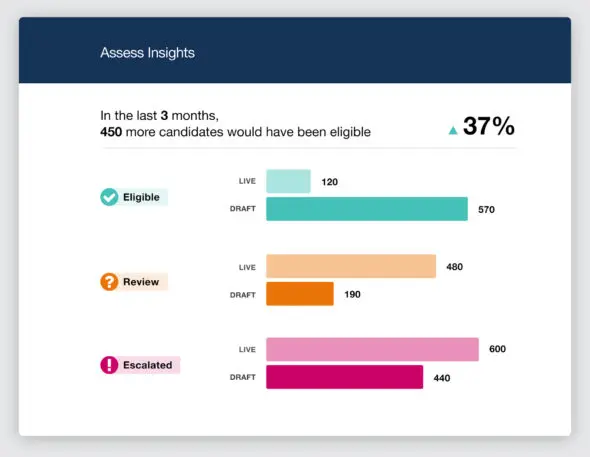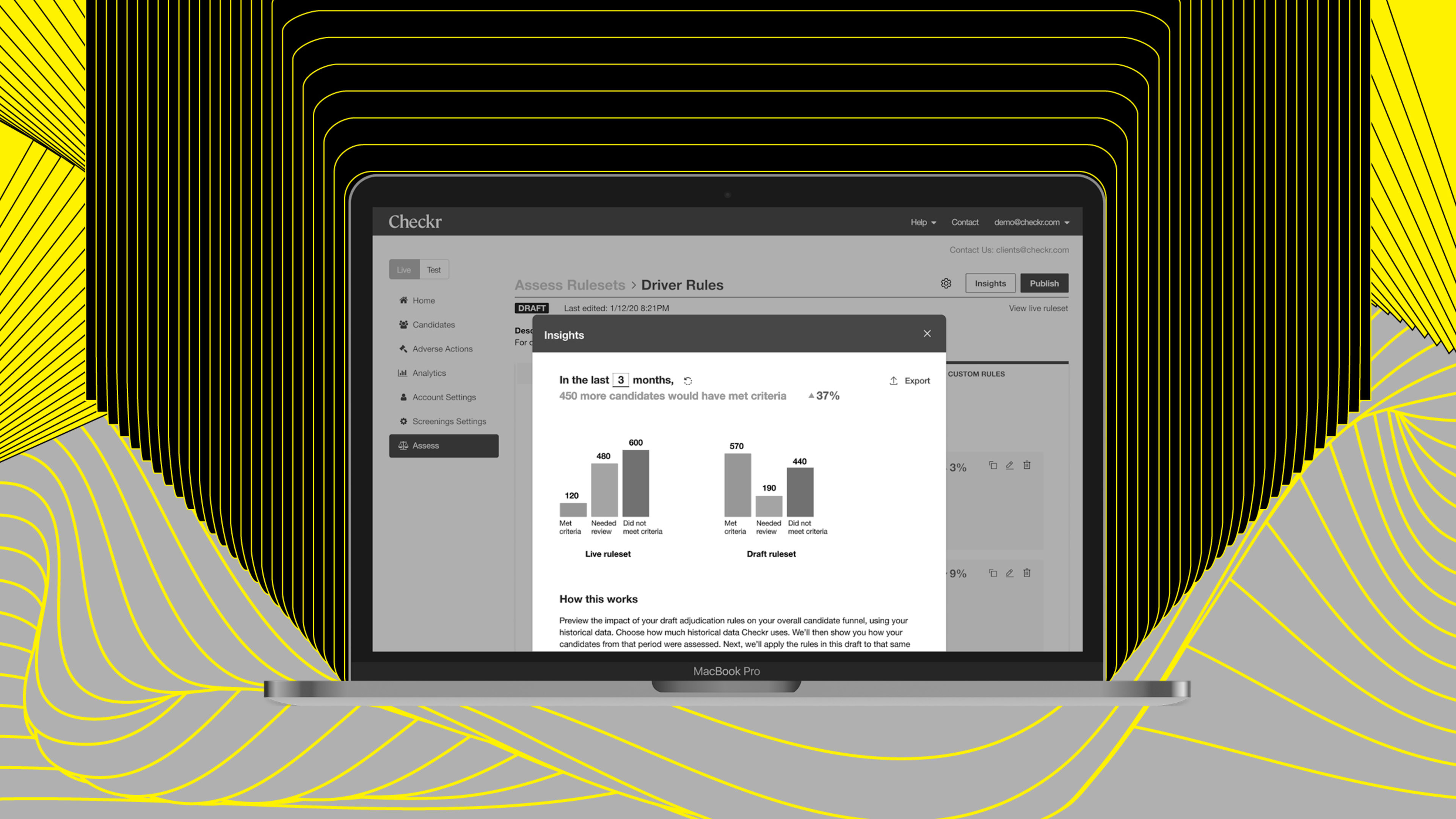For many companies, running a background check on a prospective employee is the final step before making a hire. A school might run a background check to make sure a potential teacher is properly licensed, and since federally insured banks are prohibited from hiring anyone convicted of money laundering, a background check can reveal any of those criminal records. Initially, when an employer used background check company Checkr, the report would result in either “clear,” if there was nothing to review, or “consider” if something popped up that needed a personal look. Today, one in three Americans have a criminal record, and so millions of background checks could be flagged—but not all criminal records are equal, or relevant to a job.
Requiring people to manually review those cases opened room for bias. If a misdemeanor drug charge pops up on someone’s record, for example, that may make someone personally doubt that hire—even if the charge was for minor marijuana possession years before. The team at Checkr wanted to eliminate any unfairness in hiring, and in 2020, launched Checkr Assess, which allows employers to filter out criminal records that aren’t relevant to the job they’re hiring for so they don’t have to waste time reviewing candidates who aren’t a fit, or risk their personal bias affecting someone’s employment opportunity. Checkr is the winner of the AI and data category of Fast Company’s 2021 World Changing Ideas Awards.

Research has shown that when companies hire people with criminal records, those hires are no more likely to be fired for misconduct, less likely to quit, and have higher retention rates than other hires. If a charge might indicate a person’s ability to do that job, Assess allows for that distinction: An employer can filter for details like type of charge and how long ago it was. They only see charges that might be relevant—like, say, a driving under the influence charge for a driver position.
Since implementing Assess in June 2020, Checkr has enabled more than 1.5 million candidates with records to get access to work who otherwise may have been denied because of past convictions. Checkr doesn’t have information on if those candidates were hired, but since background checks usually happen at the end of the hiring process, and without that check disqualifying them, Rabison says it’s likely they were. “It’s aligning business incentives with our incentive as a fair chance promoter,” says Product Manager A.J. Remlinger. Fair hiring is the idea of giving a fair chance at employment to everyone, regardless of their criminal history, and Checkr is pushing for fair chance hiring not just for its clients, but internally: 5% of employees there are fair chance hires, and those employees have a 79% retention rate and 44% promotion rate.
Recognize your brand’s excellence by applying to this year’s Brands That Matter Awards before the early-rate deadline, May 3.
